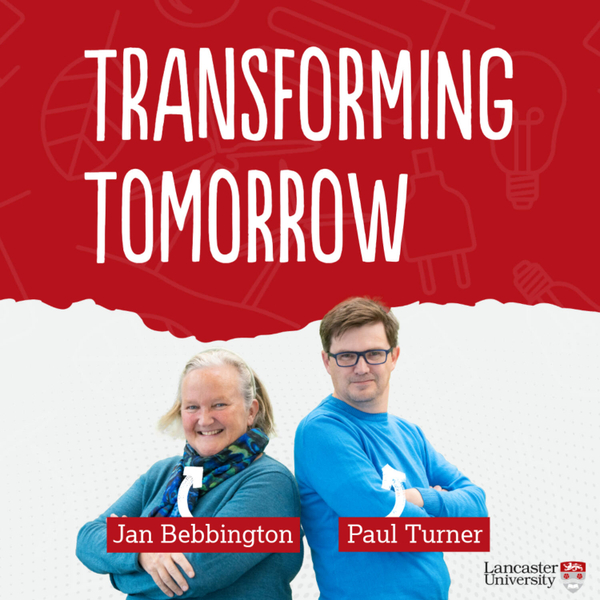
Are you a public or a private person? Or maybe a bit of both? It’s not always easy to say.
The same goes for how we characterise the public and private sectors. The private sector goes beyond a simple characterisation of making a profit – and the public sector beyond providing services for people. The boundaries are blurring – where do the public and private sectors meet, and how does their symbiotic relationship work?
Dr Martin Quinn is a Reader in OWT – which in his northern brogue suggests a life of vague reading lists and relaxed afternoons in a comfy chair. But he brings with him expertise in the private and public sectors, and how they play out in terms of politics and the environment.
We discuss the concept of public value, how the public sector can help the private sector flourish, whether the private sector operates for anything other than profit, and examine anchor institutions that provide sustained employment, and sometimes even a reason for towns and cities to exist.
Plus, as Martin searches for hope, we take a journey to the world of Thomas the Tank Engine – and Paul’s childhood on Sodor – discuss GCSE geography lessons; talk about how Venice – and Morecambe – changed during Covid; and reveal the joys of working with geologists.
Discover more about Martin’s research here: https://www.lancaster.ac.uk/lums/people/martin-quinn
Here is more detail on the Ministry of the Future book mentioned in the podcast: https://en.wikipedia.org/wiki/The_Ministry_for_the_Future
Transforming Tomorrow
Sustainability is a key consideration for any contemporary business, from biodiversity to modern slavery, seabeds to factory floors. On Transforming Tomorrow, we’ll guide you through the complex, ever-changing and often exciting (yes, really!!) world of sustainability in business. Alongside members of the Pentland Centre, academic experts, and business leaders, we cover the theory and practice of mainstreaming social and environmental sustainability into purposeful business strategy and performance.
Whether you are leading change in your business, or just want to know more about how asteroid mining may influence the future of sustainability, Transforming Tomorrow is the show for you.
Taking you through it all are your hosts, Jan and Paul, who bring insight, perspective, and not a little amount of disagreement, to all the subjects.
Join us every Monday to uncover new insights and become a little more inspired that you can make a difference in sustainability.
You can find transcripts for most episodes at: https://www.lancaster.ac.uk/pentland/resources-for-education-and-practice/transforming-tomorrow-podcast/transcripts/
Send your questions on any of the issues we discuss in Transforming Tomorrow to [email protected] or fill in our feedback form here: https://forms.office.com/e/7Bw4rDiRDt
Find out more about the Pentland Centre and its work here: https://www.lancaster.ac.uk/pentland/
https://doc.your-brochure-online.co.uk/Lancaster-University_Transforming-Tomorrow/
Meet the Hosts
Professor Jan Bebbington is the Director of the Pentland Centre for Sustainability in Business at Lancaster University. Jan is an expert on accounting, benchmarking (to her co-host’s annoyance), and how business and sustainability intersect.
Jan loves nature and wants to protect it – and hopes she can change the world (ideally for the better). She is also motivated to address inequality wherever it is found and especially to eliminate forced, bonded or child labour. Transforming Tomorrow is one small step on that quest.
Paul Turner is a former sports journalist who now works promoting the research activities in Lancaster University Management School – a poacher turned gamekeeper as his former colleagues would have it.
Paul has always been interested in nature and the natural environment – it comes from growing up in Cumbria – and has been a vocal proponent of the work of the Pentland Centre since joining Lancaster University. He does not like rankings and benchmarking, and is not afraid to say so.